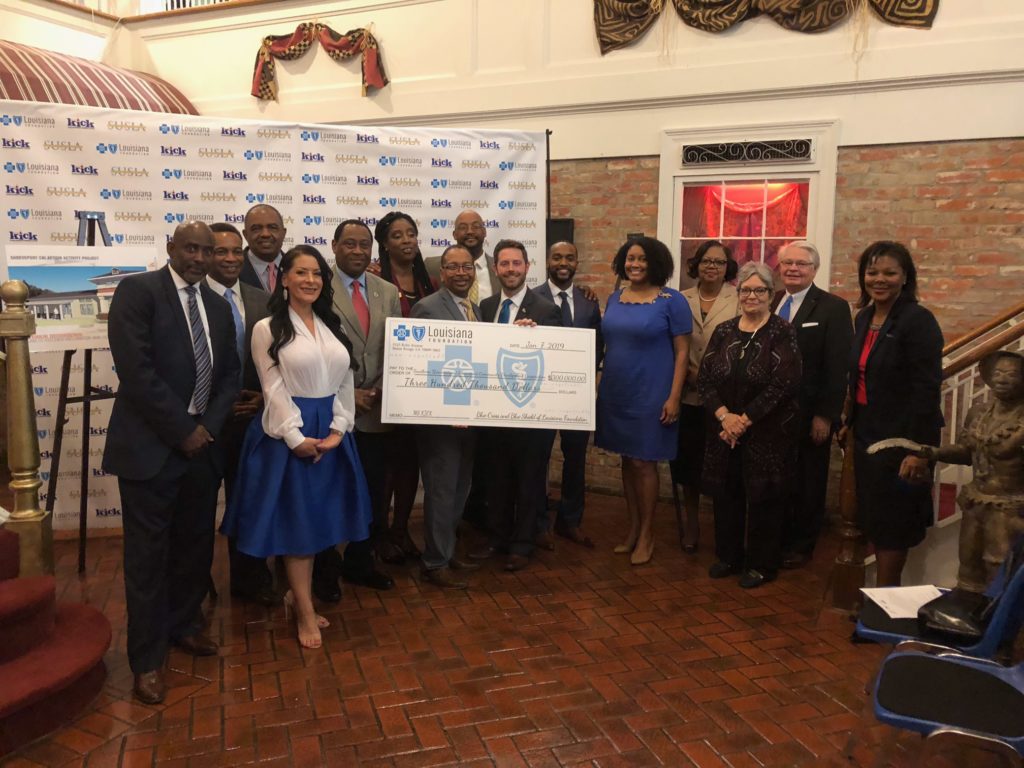Last week, we had the pleasure of announcing a collective impact grant to Southern University at Shreveport for their Milam Street Kitchen Incubator and Community Kitchen (MS KICK). The kitchen, located in the heart of Shreveport’s Choice Neighborhood, will provide jobs, training and business mentorship, health education and a healthy restaurant in an effort to improve health in the community.
MS KICK will provide training and mentorship to budding chefs through their incubator. Their Community Kitchen will offer healthy, tasty meals. Finally, MS KICK incorporates a Culinary Medicine center (based on Tulane School of Medicine’s Teaching Kitchen Model). There, individuals training in healthcare fields will learn to use food as preventive medicine, which they will then teach to patients.
This extraordinary effort couldn’t have happened without partners across Shreveport, including Southern University at Shreveport, the City of Shreveport, the Housing Authority of the City of Shreveport, the Federal Choice Neighborhoods Program, Southern University Shreveport’s Community Development Corporation and the MLK Health Center & Pharmacy — plus many others and countless individuals representing various neighborhoods and interests in the region.
The Blue Cross and Blue Shield of Louisiana has been funding collective impact projects since we launched the Challenge for a Healthier Louisiana in 2010.
Collective impact is a model that encourages community groups to work together with a common agenda, shared measurements and continuous coordination and communication in order to make a dent in major social problems. The model nationally has various additional parts but it is these pieces, which speak to the power of collect action, that we’ve been funding since 2010 and which we believe show great promise to addressing so many challenges in our state.
Think of it as fighting a forest fire. Everyone can turn their garden hoses on against the flames — but it takes constant planning, evaluating and refocusing of a broad scale of resources to put it out. We need the water, but we need it at the right place at the right time.
Right now, too many organizations are working in isolation. It’s one of the challenges we face when addressing health outcomes here in Louisiana and across the nation. But through structured collaboration, we’ve seen collective impact make a difference.
Collective action works. Our partners at LSU Pennington Biomedical Center recently had their study of the Challenge Grant program published in a peer-reviewed journal, validating something researchers across the nation have been trying to prove for years: focused coalitions working in concert can affect the health habits of an entire community. And those healthy habits eventually add up to big results.
Our next Collective Impact Grant deadline is March 1 — but we know it can take a lot of time to build coalitions. If you’re working on a community approach to a persistent health problem, we want to hear from you! Plan to apply for support in March or at a future deadline but regardless, we want to support you and your community as you decide upon the action you can take to address the most pressing health issues in your area.
